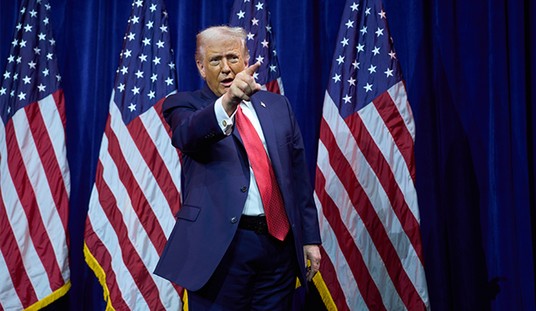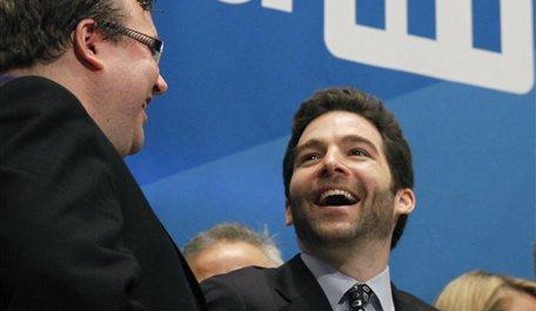Via Brendan Nyhan, there’s no better way to celebrate a day of national unity like Washington’s birthday than by sneering at the ignorance of our political opponents.
Okay, fine. Relative ignorance.

Why the disparity? One possibility is education. Follow the last link and scroll down to Table 7 and you’ll see, as expected, that the more educated you are, the less likely you are to see astrology as scientific. According to the very first polls taken on the tea party movement in 2010, TPers are better educated (and wealthier) than the population on average. That probably explains why “conservative Republican” is at the bottom of the list above. On the other hand, exit polls from election day 2012 show Obama winning only narrowly among voters without a college degree. Maybe the education gap between the parties isn’t so pronounced. Or maybe income is somehow a better peg for astrological belief than education is: O did win heavily among poorer voters.
Another possibility is faith. It may be that the more devoutly you believe in a religion, the less likely you are to give credence to a quasi-religious belief system (which nonetheless purports to be “scientific”) like astrology. That would help explain why Republicans, the more religious of the two parties, are more skeptical. On the Democratic side, it’s a mirror image of the same story: Liberals are more likely to be religious skeptics than other Democrats and that bleeds over into skepticism of astrology, which pushes their numbers lower than moderate or conservative Dems. But not too low — one of the striking findings here is that even lefties are more than 10 points more likely to find scientific value in astrology than righties are.
The third possibility is that this is, to some degree, a byproduct of age demographics. You ready for this?

You get a 10-point drop with every 20 years of age. Republican voters skew older and young voters, famously, skew Democratic. It’s the ignorance of the millennials and the comparative wisdom of the elderly that’s pushing Democrats down and Republicans up, respectively. (Although … what’s up with the 70+ crowd?) Not only that, but according to another study of Americans’ confidence in astrology released last week, most of the population — but millennials especially — have seen their credulousness about astrology increase since 2005. Nine years ago, just 40 percent or so of the 18-29 age group believed that astrology was sort of scientific; today it’s nearly 60 percent. How come?
Maybe we can figure this out. Click the last link and eyeball the two graphs there. In the first graph, the number of skeptics (people who think astrology is “not at all scientific”) starts to climb halfway through Reagan’s first term, as America recovers from recession, and stays relatively high throughout the prosperous 90s. It starts to dip around the time Clinton was impeached — and then skyrockets right after 9/11, falling gradually but consistently since then. The second graph, tracking the number of believers (people who think astrology is at least sort of scientific) falls until 2005 and then increases only modestly — until around 2008, when it soars and keeps on soaring. Put all of that together and what we’re seeing here, I think, is people’s faith in astrology waxing and waning as their faith in public institutions rises and falls. A rosy economy in the 80s and 90s made them skeptical; the big swell of national unity after 9/11 made them even more skeptical. But as the Iraq war wore on and then, especially, the financial crisis and ensuing recession hit, they’ve lost faith in the economy and the government. Obama’s term in office has done little to repair it, so they start dabbling with alternate belief systems to impose order on the world. That’s not the only explanation for what’s happening, as I’ve already noted, but it ain’t just poor schooling, I think, that explains why millennials in particular are more susceptible to this. They’re the ones getting hit hardest in recession-era America. As is the lower class, which might account for the income link I suggested earlier.
I’ll leave you with this in lieu of an exit question:









Join the conversation as a VIP Member